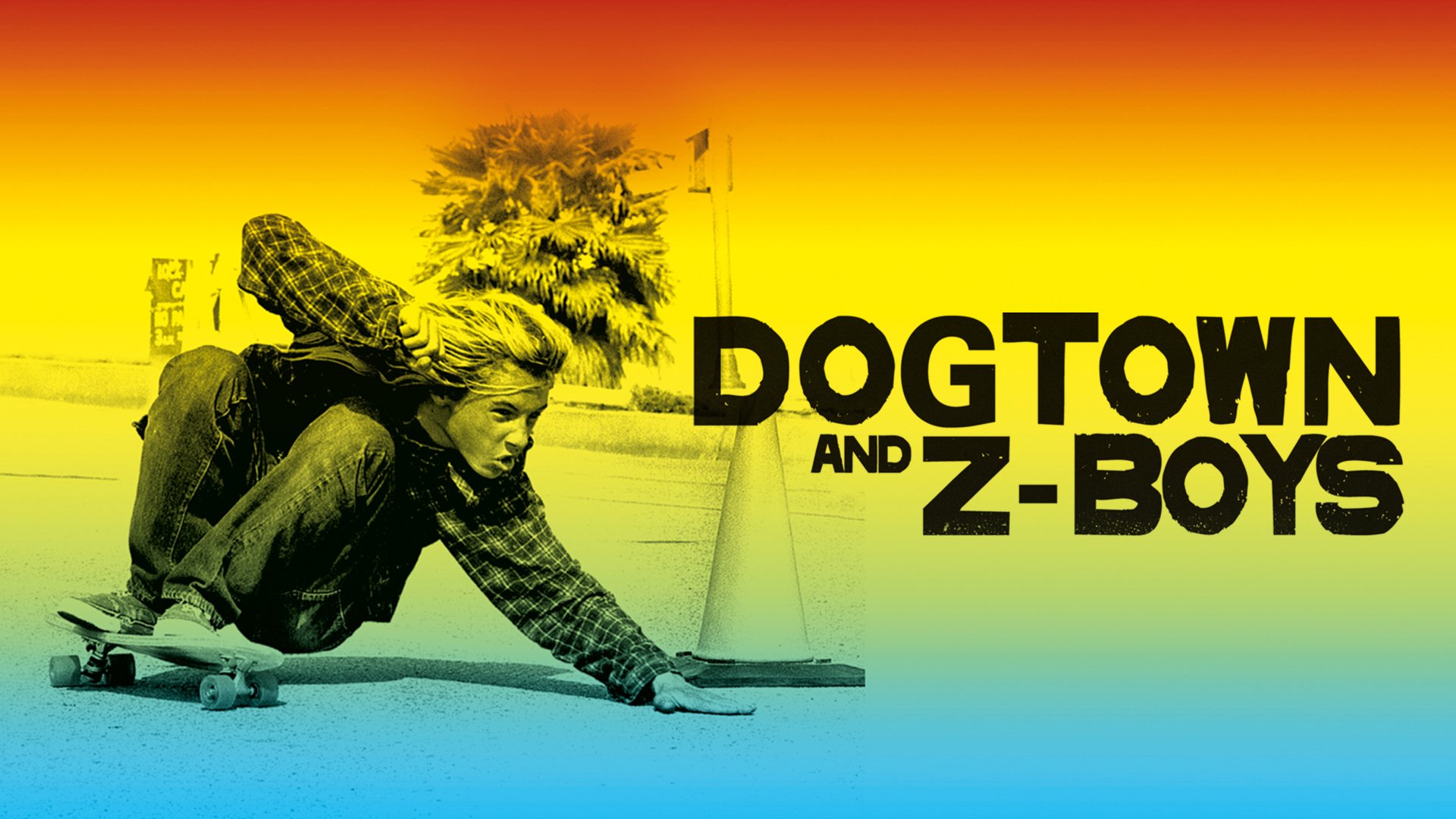
Dogtown and Z-Boys is a groundbreaking documentary that takes us deep into the world of skateboarding, showcasing the raw talent and rebellious spirit of a group of young boys from the Dogtown neighborhood of Santa Monica, California. Directed by Stacy Peralta, who was one of the original Z-Boys, the film explores the origins of modern skateboarding and its evolution from a pastime to a global cultural phenomenon. Filled with incredible archival footage and interviews with legends like Tony Alva and Jay Adams, Dogtown and Z-Boys provides a captivating and authentic look at one of the most influential subcultures in history. In this article, we will delve into 50 fascinating facts about this remarkable documentary that will surely ignite your passion for skateboarding and leave you wanting to hit the pavement.
Key Takeaways:
- Dogtown and Z-Boys is a rad documentary about rebellious skateboarders who changed the sport in the 1970s. It’s full of cool tricks, awesome music, and inspiring stories of passion and dedication.
- The Z-Boys’ influence on skateboarding is still felt today, showing how their fearless style and creativity shaped the sport. It’s a must-watch for anyone who loves skateboarding or cool stories!
Dogtown and Z-Boys is a documentary film directed by Stacy Peralta.
The film explores the birth of the skateboarding scene in Dogtown, a neighborhood in Venice, California, during the 1970s.
The movie was released in 2001 and received critical acclaim for its portrayal of the influential Zephyr skateboard team.
The Z-Boys were a group of teenage skateboarders who revolutionized the sport with their innovative style and aggressive approach.
The film features interviews with members of the Zephyr skate team, including Tony Alva, Jay Adams, and Stacy Peralta.
These interviews offer an insider’s perspective on the rise of skateboarding culture in the 1970s.
Dogtown and Z-Boys uses a mix of archival footage, photographs, and reenactments to tell the story of the Z-Boys’ impact on skateboarding.
The film captures the raw energy and excitement of the skateboarding scene during that time.
The documentary highlights the influence of surfing culture on the Z-Boys’ skateboarding style.
Many of the Z-Boys were avid surfers, and they incorporated surfing techniques into their skateboarding, creating a unique and fluid style.
The movie showcases the gritty and rebellious nature of the Dogtown skateboarding scene.
Skateboarding was seen as an underground and countercultural activity, and Dogtown became a hub for rebellious youth.
The film explores the challenges faced by the Z-Boys as they navigate the world of professional skateboarding.
They encounter issues such as sponsorship deals, fame, and the commercialization of skateboarding.
The soundtrack of the film features a mix of classic rock and punk music, capturing the rebellious spirit of the 1970s skateboarding scene.
Bands such as The Jimi Hendrix Experience, Black Sabbath, and The Stooges are included in the soundtrack.
Dogtown and Z-Boys won the Audience Award and the Director’s Award at the Sundance Film Festival in 2001.
The film resonated with audiences and critics, cementing its status as a landmark documentary in skateboarding history.
Stacy Peralta, the director of the film, was a former member of the Zephyr skate team and played a crucial role in documenting their story.
Peralta’s personal connection to the subject matter adds depth and authenticity to the film.
The release of Dogtown and Z-Boys helped spark a renewed interest in skateboarding and influenced a new generation of skateboarders.
The film highlighted the creativity and passion of the Z-Boys, inspiring countless individuals to take up skateboarding.
The impact of the Z-Boys can still be felt in modern skateboarding culture.
Their style and approach revolutionized the sport and paved the way for the development of modern skateboarding tricks and techniques.
Dogtown and Z-Boys brought attention to the skateboarding subculture and helped legitimize skateboarding as a respected sport.
The film showcased the athleticism and artistry of skateboarding, challenging preconceived notions about the sport.
The Z-Boys’ story has been fictionalized in the 2005 drama film Lords of Dogtown.
Lords of Dogtown is a fictionalized account of the Z-Boys’ rise to fame and further contributed to the popularity of the skateboarding scene.
Dogtown and Z-Boys is often regarded as one of the best skateboarding documentaries ever made.
Its authentic portrayal of the Dogtown skateboarding scene and its impact on the sport make it a must-watch for skateboarding enthusiasts.
The film delves into the personal struggles and triumphs of the Z-Boys, giving viewers a deeper understanding of their journey.
From family dynamics to the pressures of fame, the documentary paints a comprehensive picture of the Z-Boys’ lives.
Dogtown and Z-Boys showcases the significance of skateboarding as a form of self-expression and a way to break free from societal norms.
The film celebrates the rebellious spirit of skateboarding and its ability to empower individuals.
The success of Dogtown and Z-Boys paved the way for more documentaries and films centered around skateboarding, further elevating the sport’s popularity.
The movie served as a catalyst for increased mainstream recognition of skateboarding culture.
The cinematography in Dogtown and Z-Boys captures the energy and excitement of skateboarding in a visually captivating way.
The film utilizes dynamic camera angles and editing techniques to enhance the viewer’s experience.
Dogtown and Z-Boys brought attention to the importance of skate parks as spaces for skateboarders to hone their skills and express themselves.
The film shed light on the need for dedicated skateboarding facilities, leading to the development of more skate parks around the world.
The movie explores the relationships and camaraderie among the Z-Boys, showcasing the bonds formed through their shared passion for skateboarding.
The Z-Boys became a tight-knit group, supporting and pushing each other to new heights in their skateboarding careers.
Dogtown and Z-Boys includes interviews with influential figures in the skateboarding world, such as Tony Hawk and Sean Penn.
These interviews provide additional insight into the impact of the Z-Boys and their legacy.
The film captures the essence of the 1970s through its portrayal of the fashion, music, and cultural attitudes of the time.
Viewers get a glimpse into the vibrant and turbulent era that shaped the skateboarding scene in Dogtown.
Dogtown and Z-Boys premiered at the Sundance Film Festival to a standing ovation, solidifying its status as a must-see documentary.
The film resonated with audiences, both within and outside the skateboarding community.
The Zephyr skate team, featured in Dogtown and Z-Boys, played a pivotal role in popularizing vertical skateboarding.
The Z-Boys’ fearless approach to riding vertical ramps helped revolutionize the sport and laid the foundation for modern skateboarding disciplines.
The documentary explores the impact of Dogtown as a geographical and cultural hub for the skateboarding community.
Dogtown became synonymous with independent and DIY skateboarding, fostering a thriving subculture.
Dogtown and Z-Boys shed light on the challenges faced by the Z-Boys as they transitioned from rebellious amateurs to professional athletes.
They had to navigate the transition from skateboarding as a hobby to a career, facing both successes and setbacks along the way.
The film captures the evolution of skateboarding tricks and techniques, showcasing the innovative contributions of the Z-Boys.
From aerial maneuvers to freestyle tricks, the Z-Boys pushed the boundaries of what was thought possible on a skateboard.
Dogtown and Z-Boys emphasizes the creative and artistic aspects of skateboarding, portraying it as more than just a sport.
The film highlights skateboarding as a form of self-expression and a means of pushing artistic boundaries.
The movie features archival footage of iconic skateboarding competitions, including the Del Mar Nationals and the Bahne-Cadillac National Championships.
These competitions were crucial in establishing skateboarding as a legitimate sport and attracting mainstream attention.
Dogtown and Z-Boys demonstrates the transformative power of skateboarding, showing how it can change lives and provide an avenue for personal growth.
Many of the Z-Boys credit skateboarding with shaping their identities and providing an escape from challenging circumstances.
The documentary sparked a resurgence of interest in pool and vert skateboarding, leading to the construction of new skate parks and the revitalization of old ones.
Skateboarding’s roots in pool riding and vertical ramps were brought back into the spotlight thanks to the film’s impact.
Dogtown and Z-Boys captures the essence of skateboarding as a form of rebellion and a means of challenging societal norms.
The Z-Boys’ approach to skateboarding challenged traditional notions of sports and paved the way for a more inclusive and diverse skateboarding community.
The film serves as a time capsule of the Dogtown skateboarding scene, preserving the history and legacy of an influential era.
It allows viewers to experience the excitement and innovation of that time period through a mix of interviews and archival footage.
Dogtown and Z-Boys showcases the pivotal moments in skateboarding history, such as the invention of the ollie and the introduction of pool riding.
These moments shaped the trajectory of the sport and contributed to its evolution.
The documentary explores the darker side of skateboarding fame, as some of the Z-Boys struggled with substance abuse and personal challenges.
It provides a nuanced look at the highs and lows of professional skateboarding.
The film captures the pioneering spirit of the Z-Boys, who pushed the boundaries of what was possible on a skateboard.
Their fearlessness and determination inspired generations of skateboarders to dream big and push the limits of the sport.
Dogtown and Z-Boys is a testament to the power of passion and dedication in shaping the course of one’s life.
The Z-Boys’ unwavering commitment to skateboarding led them on a remarkable journey that continues to inspire others.
The movie highlights the role of mentorship in the Z-Boys’ success, as they learned from and were guided by experienced skateboarders such as Skip Engblom and Craig Stecyk.
This mentorship played a crucial role in their development as skateboarders and as individuals.
Dogtown and Z-Boys celebrates the DIY ethos of skateboarding, emphasizing the importance of creativity and self-expression in the sport.
The Z-Boys were pioneers of creating their own skateboarding obstacles and pushing the boundaries of what was possible.
The film showcases the impact of Dogtown as a physical location, with its empty pools and steep hills providing the perfect playground for skateboarding.
Dogtown’s unique landscape shaped the Z-Boys’ style and approach to skateboarding.
Dogtown and Z-Boys features interviews with influential figures in skateboarding culture, such as Tony Hawk and Rodney Mullen.
These interviews provide additional insight into the influence and enduring legacy of the Z-Boys.
The documentary captures the energy and excitement of skateboard competitions, transporting viewers back to a time when skateboarding was still a niche and underground sport.
The raw and unfiltered nature of these competitions is showcased in the film.
Dogtown and Z-Boys sheds light on the role of media and photography in promoting skateboarding and elevating the status of the Z-Boys.
Magazines such as Skateboarder and Skateboarding played a crucial role in spreading the Z-Boys’ fame and influence.
The film explores the relationship between skateboarding and art, showcasing the artistic elements of skateboard design and graphics.
Art and skateboarding have always been intertwined, and Dogtown and Z-Boys celebrates the visual artistry of skateboarding.
The documentary delves into the cultural significance of the Z-Boys’ style and attitude, which resonated with youth counterculture in the 1970s.
The Z-Boys became icons of rebellion and represented a generation that refused to conform.
Dogtown and Z-Boys ignited a renewed interest in the history of skateboarding and the pioneers who shaped the sport.
The film’s impact can still be felt today in the increased appreciation for skateboarding’s roots.
The movie highlights the role of innovation in skateboarding, as the Z-Boys constantly pushed the boundaries of what was possible on a skateboard.
Their relentless pursuit of progress helped pave the way for the modern skateboarding industry.
Dogtown and Z-Boys showcases the passion and love for skateboarding that drove the Z-Boys to overcome obstacles and achieve greatness.
The film highlights the intrinsic rewards of pursuing one’s passion.
The legacy of the Z-Boys lives on through the continued influence of their innovative style and approach to skateboarding.
Their impact on the sport can still be seen in the tricks and techniques used by skateboarders worldwide.
Conclusion
Overall, Dogtown and Z-Boys is a captivating and influential documentary that provides an in-depth look into the birth of modern skateboarding culture. With its raw and gritty footage, compelling interviews, and powerful storytelling, the film takes audiences on a thrilling ride through the streets of Venice, California in the 1970s.
Through its portrayal of the Zephyr Competition Team, Dogtown and Z-Boys showcases the passion, rebellious spirit, and creativity that revolutionized skateboarding. The film not only pays homage to the individuals who pushed the boundaries of the sport but also sheds light on the cultural and societal impact it had on youth culture.
From its iconic soundtrack to its stylistic editing, Dogtown and Z-Boys immerses viewers in a world filled with adrenaline, camaraderie, and the pursuit of freedom. Whether you’re a skateboarding enthusiast or simply curious about the origins of a global phenomenon, this documentary is a must-watch for its captivating storytelling and rich historical content.
FAQs
1. Who directed Dogtown and Z-Boys?
The documentary was directed by Stacy Peralta, one of the original Z-Boys and a prominent figure in the skateboarding world.
2. Is Dogtown and Z-Boys based on a true story?
Yes, the documentary is based on the true story of the influential Zephyr Competition Team and their impact on the skateboarding subculture.
3. When was Dogtown and Z-Boys released?
The documentary was released in 2001 and received critical acclaim for its portrayal of the skateboarding scene in the 1970s.
4. Can I watch Dogtown and Z-Boys if I’m not into skateboarding?
Absolutely! While the film delves deep into the history of skateboarding, it is also a fascinating exploration of youth culture, rebellion, and the pursuit of passion.
5. Is Dogtown and Z-Boys suitable for all audiences?
The film is rated PG-13 for language and some drug references, so it may not be suitable for very young audiences without parental guidance.
Was this page helpful?
Our commitment to delivering trustworthy and engaging content is at the heart of what we do. Each fact on our site is contributed by real users like you, bringing a wealth of diverse insights and information. To ensure the highest standards of accuracy and reliability, our dedicated editors meticulously review each submission. This process guarantees that the facts we share are not only fascinating but also credible. Trust in our commitment to quality and authenticity as you explore and learn with us.


